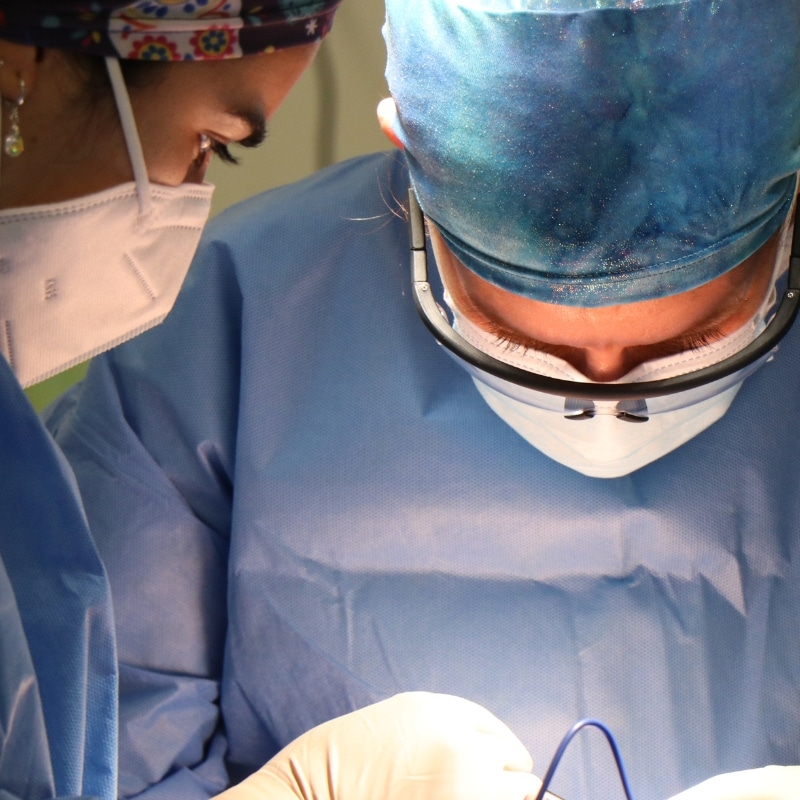Obesity is a growing issue among teenagers in the United States. About 1 in 5 teens between the ages of 12 and 19 are now living with obesity, according to the Centers for Disease Control and Prevention (CDC). Obesity is no longer a fringe health concern. It is mainstream. And because of that, the medical community has been rethinking how to respond.
For a long time, the default options were limited to better diet, more exercise, and, in the most severe cases, bariatric surgery. However, the landscape is shifting. Weight loss medications, especially GLP-1 receptor agonists, are stepping into the spotlight. Some experts are even wondering whether these medications are the new bariatric surgery for teens.
Let’s walk through what is changing, what we know so far, and why the answer is not as simple as it might seem.
The Obesity Challenge
The teenage years are a critical window. Habits form, self-esteem solidifies, and health trajectories often begin. When more than 390 million children and adolescents aged 5 to 19 were overweight in 2022, including 160 million living with obesity, it points to much more than personal lifestyle choices.
Factors like genetics, environment, food systems, and socioeconomic barriers all play a role. It is a heavy burden for a young person to carry, one that often comes with serious health risks like diabetes, heart disease, sleep apnea, and depression.
Historically, weight management programs focused on the following lifestyle changes first:
- Nutrition counseling
- Exercise programs
- Behavioral therapy
Surgery came next for those who struggled despite their best efforts. Today, though, medications are entering the conversation much earlier.
How the Era of Medications Is Shaping Up
The American Academy of Pediatrics (AAP) made a major move in 2023. For the first time, they recommended prescribing anti-obesity medications alongside lifestyle support to teens as young as 12.
That decision did not happen in a vacuum. It followed promising research and a skyrocketing interest in GLP-1 receptor agonists, medications that change how the body processes food and manages hunger signals.
Real-world adoption has been swift. According to the Association of American Medical Colleges (AAMC), prescriptions for GLP-1 medications among youth jumped 700% between 2022 and 2024. That kind of surge shows a fundamental change in how families and providers are thinking about treatment.
How GLP-1 Medications Work
If you are wondering what makes these medications so different, it helps to know how they function.
GLP-1 receptor agonists, such as semaglutide (Wegovy) and liraglutide (Saxenda), work by mimicking natural gut hormones. They slow down digestion, make you feel full sooner, and enhance insulin release. As a result, you feel less hungry, have smaller meals, and experience gradual weight loss.
In a real-world case highlighted by AAMC, a 16-year-old teen lost 42 pounds within a year while on semaglutide. Beyond the numbers, she reported feeling more energetic, healthier, and even happier, a reminder that weight loss is not just about a number on the scale.
Are Medications Replacing Surgery?
Thousands of teenagers still undergo bariatric surgery every year. It remains an essential tool, especially for teens with severe obesity. These are teens whose body mass index (BMI) sits at 120% or more above the 95th percentile for their age and sex.
Surgery achieves impressive results. According to Boston Children’s Hospital, procedures like sleeve gastrectomy and Roux-en-Y gastric bypass can lead to up to 35% total body weight loss. That is often life-changing, especially for teens facing immediate threats like type 2 diabetes or heart disease.
Medications, on the other hand, typically result in 10–25% total body weight loss, depending on the drug and the person. That is a meaningful difference. While GLP-1s are less invasive than surgery, they require long-term use to sustain benefits. Once someone stops taking the medication, weight tends to come back.
In other words, medications are expanding the treatment options. They are not replacing surgery. They are, however, creating more stepping stones along the treatment path.
Benefits and New Opportunities
There are plenty of reasons why providers and families are excited about medical weight loss options for teens:
- Earlier intervention: Medications can be used before health issues become severe.
- Non-surgical: No operating room, anesthesia, or permanent anatomical changes.
- Holistic support: Medications complement, not replace, healthier eating, physical activity, and emotional well-being.
But There Are Risks, Too
No treatment is perfect. GLP-1 medications come with side effects, some common and some rare but serious.
Nausea, vomiting, diarrhea, and headaches are frequent complaints. Some teens also face a small risk of developing gallstones or pancreatitis. These risks usually stay manageable with good medical supervision, but they are important to understand.
There are also bigger unknowns. Experts have raised concerns about long-term effects. These medications affect developing bodies in ways we still do not fully understand. Teens who start on GLP-1s may need to stay on them for years, maybe even decades.
There is also the psychological aspect. Some organizations worry that emphasizing weight loss through medications or surgery at a young age could deepen body image issues or make teens feel pathologized for something deeply tied to biology and environment.
Bariatric Surgery Still Has a Place
For teens facing severe obesity and serious health risks, bariatric surgery is still a critical and effective option.
While GLP-1 medications offer a valuable tool, they are not enough for everyone. Surgery, when done well and supported by lifestyle and mental health care, has an excellent track record of success.
However, surgery is rarely a first step. It comes after months of preparation that incorporate health evaluations, nutrition counseling, and psychological support. The goal is not a quick fix but a structured, thoughtful journey toward sustainable health.
Some teens even use medications after surgery to help with long-term weight management if weight gain becomes a concern later on.
Support Healthy Journeys for Teens Today
At Zeam Health & Wellness, we believe every teen deserves personalized, compassionate care. That is why our primary care services in Folsom and Roseville include medical weight loss programs and diabetes management, thoughtfully designed to support long-term health.
If you are ready to start the journey toward better health for your teen, reach out to us today to schedule an appointment.




